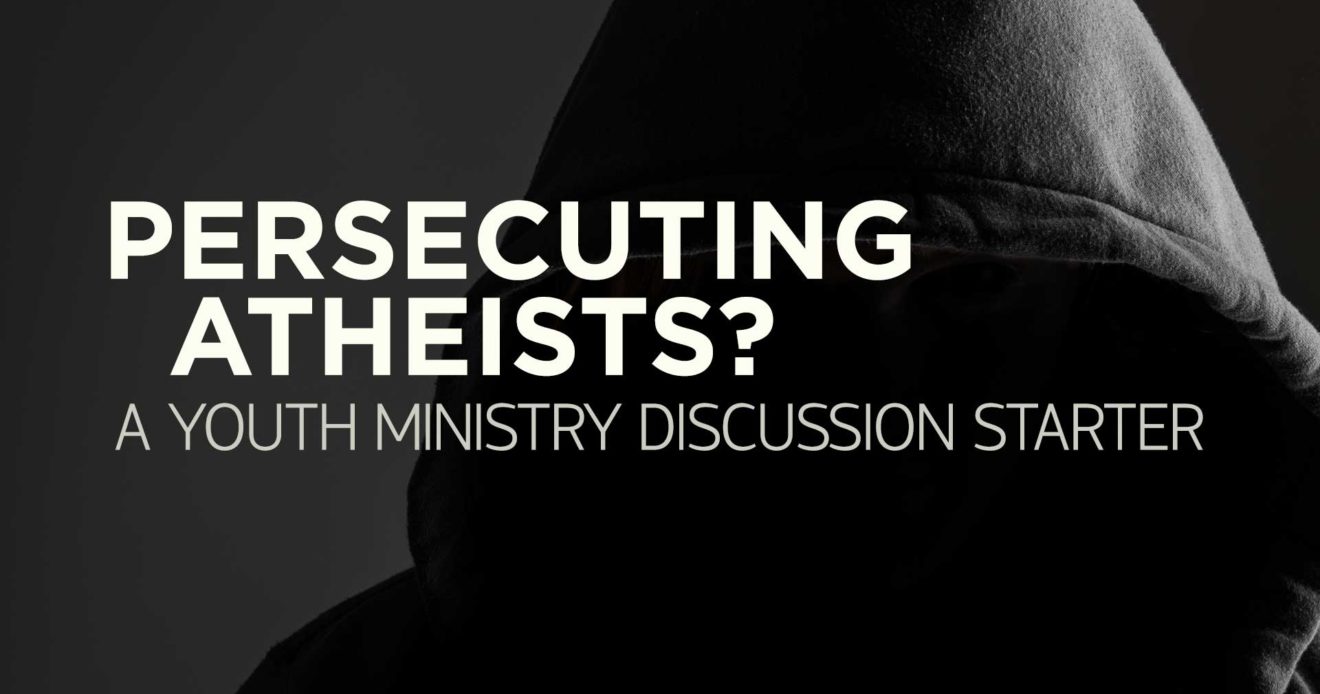
Discussion Starter: Persecuting Atheists?
Persecution is likely a familiar topic in your church and, perhaps, in your group. Jesus warned his followers that they would be hated, just as he was. Peter and Paul give comfort and instructions to first-century Christians under fire and on the run for their commitment to Christ. And recent global events escalate our awareness that Christians have been and are being ostracized, beaten and killed for their faith.
Often, a conversation about persecution includes questions or comments about what qualifies as persecution. As parts of the culture, especially secular media, have become more vocal about not believing in Jesus – and sometimes mocking those who do – it’s not uncommon to hear Christians talking about feeling persecuted or bullied for their beliefs.
Of course, there’s a difference between having late night comics – and even close friends – question your intelligence for believing in God and being physically abused or arrested or fired for what you believe about Jesus.
But teenagers, especially, are very sensitive to any hint of feeling different, disliked or mocked. The stakes feel very high for them and for their parents when it comes to not feeling included, respected or appreciated.
And that brings us to this interesting story in the Atlantic called Bullied for Not Believing in God. It opens with the story of an atheist teenager who snapped a picture of a Ten Commandments plaque in his Oklahoma high school’s biology classroom. He anonymously sent that picture to a group called the Freedom From Religion Foundation, who complained to the school district, who asked for the plaque to be removed.
Two things followed: An uprising, of sorts, as students and parents petitioned to keep the plaque and argued publicly (and reasonably) that having it posted was not a violation of anyone’s rights. Also, everyone wanted to know who sent the picture. When the young man came forward on a blog, he and his sister certainly began to feel persecuted. His mother worried about his safety. He understood that his lack of belief and his position on the posting of the Commandments made him disliked by some.
Consider talking about the big ideas raised by this story with your students. You could introduce it by reading the first part of the Atlantic story to your group. Then think about asking some of the following questions, with the intention of getting them to see our responsibility to show Christ’s love to all whether our belief about him is in the majority or the minority.
- Was the atheist student being persecuted for his lack of belief?
- Do you think he felt scared or hurt or angry?
- How would you feel if a choice you made to act on your beliefs led to having lots of people not liking you?
- If you go to a public school, what do you think would happen if someone did the same thing there?
- What qualifies as being persecuted or bullied about what you believe (or don’t)?
- If an atheist did something similar to this in your town or school, how would you feel about it?
- How would you likely treat that person?
- Do you know Christians who would be threatening, rude or unkind to an atheist for doing something like that?
- What do you think is the right response for a Christian to have toward someone who clearly doesn’t believe as we do?
- How should our responses be different when there are way more Christians than others?
- How about when there are way fewer Christians? Does it matter?
- Do you think the Christians you know have a reputation for loving their enemies and doing good to those who disapprove of them? How do we show Christ’s love to those who don’t believe Jesus is the Son of God?
Eventually, think about wrapping up the discussion by talking about Peter’s instructions in 1 Peter 3:8-18 to Christians facing persecution. How does Scripture tell us to live in relationship with people who are willing to hurt us for believing in Jesus? How does that apply when we’re the ones in the majority?
Comments
Get the AwanaYM Update
Receive youth ministry resources in your inbox. Subscribe today!